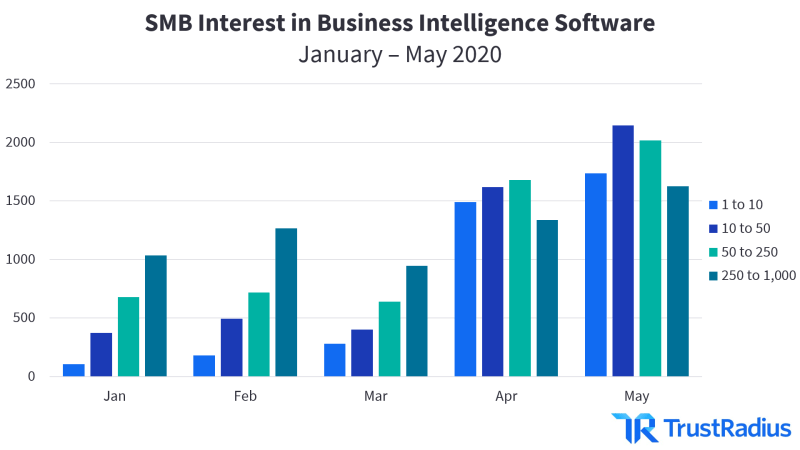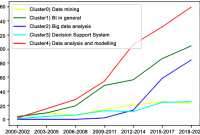What Is Business Intelegence – Business Intelligence (BI) includes the strategies and technologies that companies use for data analysis and business information management. A fundamental outcome of any BI practice is the ability to provide self-service analytical solutions to business users. The solution prioritizes speed to gain insights and empower end users to answer their own questions and make data-driven decisions to help support growth. The path to BI modernization is never linear because after answering one question, the next ones are not far away. With this in mind, an iterative process must be followed.
At its core, BI is an umbrella term that encompasses many different moving parts. These parts are important parts that facilitate greater focus on data-driven decision making in an organization.
What Is Business Intelegence
Over time, more and more concepts/practices have been introduced into BI. Below are some examples of some of these key concepts:
What Is The Difference Between Reporting And Business Intelligence Anyway?
Data Warehousing: A centralized data warehouse. This data is collected from various sources within the company and is designed to facilitate the cleaning and analysis of data that will guide management decisions.
Data Mining: The process of analyzing large data sets using spatial techniques, with the goal of discovering patterns and/or trends in the data set.
Data Analysis: The process of modeling and analyzing data with the goal of testing known hypotheses by generating information from data sets.
Master data management: Processes created and executed by people and technology to maintain and deliver accurate, understandable, reliable and controlled data.
How To Become A Business Intelligence Analyst In 2024: 5 Steps For Success
Each of these concepts could have its own blog post (let me know if there are areas you’d like to learn more about), but most organizations accomplish most of these tasks in one way or another. The first step to modernizing BI is to identify these processes in your own organization, understand how they currently work, and recognize potential weaknesses so you can improve them.
To start this conversation in your own organization, take our PDF download as a helpful reference point.
Do you have questions or want to talk about how your organization manages Business Intelligence? Get in touch! We would love to hear from you.
When CRM Analytics is chosen as a Business Intelligence application for data visualization, a common question always arises: Should we develop in Production or in Sandbox? In this post, we will cover the pros and cons of using Production and Sandbox for CRM Analytics development projects, and we will also cover the responsibilities of the administrator when […]
What Is Business Intelligence
Founder and CEO Greg Poirier was recently joined by sales and marketing/RevOps experts Ursula Ayrout and Betsy Sewell to talk about their RevOps experience and share some insights and insights into their plans for 2023. Here are some of the highlights, and you can find the full video below. 2:24 – What is more important? The benefits of implementing Business Intelligence (BI) can be measured at every step of production, from minute-by-minute decisions to long-term planning. Business Intelligence solutions help organize data for easy access and analysis. Organizations can deliver insights faster by putting data exploration in the hands of subject matter experts who understand the business. Business Intelligence benefits organizations by treating data as a strategic asset to better plan and manage their businesses.
Data-driven decision making is the practice of making key decisions based on empirical data rather than intuition or a “what’s been done” mentality. BI benefits organizations that want to be data-driven, adaptable, and have a growth mindset. This section highlights 7 benefits of business intelligence.
Do it faster, not harder. A well-designed dashboard presents the most important insights up front, driving decision making, efficiency, and return on investment.
Manually collecting data from multiple sources, importing it into Excel, cleaning data, reformatting it, and creating reports is time-consuming and expensive. Automating data collection by creating dashboards saves a lot of time and effort. It also allows you to focus on data usage and reporting. Depending on the amount of reporting you do using the above method, this may save some of your employee’s time or the entire team’s time.
What Do Business Intelligence Analysts Do? Top 2024 Guide
Having up-to-date metrics on operational performance allows managers to optimize team schedules, reorder critical supplies before they run out, avoid downtime, and more. This can have a material impact on the bottom line as people are better able to manage their production. You benefit from the actions you take and the actions you take in shorter time cycles. You can estimate the impact through a thoughtful discussion about what leading experts believe would be possible if they had access to the data when they needed it. You’ll hear things like a 5% reduction in driver downtime. The amount is and is included in your case.
With effective dashboards, thought leaders have instant access to the relevant data they need to make informed decisions. Faster decision making can allow each department to respond quickly to market forces to achieve and maintain a competitive advantage. For example, manufacturing companies can anticipate shortages in the supply chain before they occur and proactively address them to maintain speed and meet demand. The value of today’s supply compared to next week can be measured by the velocity of value generated.
Business Intelligence software can help companies identify trends in customer appetite, process bottlenecks, and late purchases. This information can then be used to reduce customer friction and increase satisfaction levels.
Having easy-to-understand visibility into customer relationships and interactions pays off in increasing actions taken to increase customer retention. For example, knowing the expiration date of all your clients’ insurance policies allows you to communicate proactively and increase retention. We have seen a 5-10% increase in retention numbers.
Benefits Of Business Intelligence
There are examples of casinos using player reward cards to track gameplay. He instructs the pit boss to intervene if someone has gambled too much or lost money and offers them something of value, such as a voucher for the buffet. It gets people away from the machine, gives them a break and improves the experience. It also increases the lifetime value of the customer to the casino.
BI-powered insights can provide a competitive advantage by helping businesses track competition and market trends to identify new opportunities. It can also increase decision-making speed and allow companies to outperform their competitors with faster time to market.
By implementing an intelligent Business Intelligence solution, you can put information in the hands of subject matter experts. They can easily combine their understanding of how the business works with the information they see to generate new insights. We’ve seen new insights represent 5 to 10 times the cost of BI implementations. The hardest part is knowing what to do before you find out. When you don’t know what is going to happen, new knowledge is almost always discovered.
Check out this case study of a client with aggressive growth goals and how to use data to drive competitive advantage.
Top 10 Free And Open Source Business Intelligence Software!
Stop reacting and create more effective strategic plans by identifying future trends as they develop. If employees spend all day or week collecting data to get a job done, information won’t be generated in time to respond to opportunities. Time will improve in using data, making decisions and acting on that data. It is an activity that creates value.
Finally, having a good BI solution improves data quality. When building and testing the system, many data quality problems are evident and persist. The BI solution itself also exposes data quickly to multiple users and helps uncover new problems quickly. That ensures that the data you use to plan and make decisions is reliable.
Data visualization to facilitate its consumption. A well-designed BI dashboard can create instant insights that would take hours to understand by looking at a table of numbers. Humans process information visually, and proper visualization can help detect patterns and opportunities that might otherwise be overlooked.
Check out this case study highlighting customers who now spend less time creating reports to provide critical insights into executive-level KPIs.
Business Intelligence: A Complete Overview
With Business Intelligence on board, companies can index their performance against their market peers as well as their toughest competitors – their own past success. Create benchmarks and track them continuously.
Combined, this creates a competitive advantage for companies with well-designed BI solutions. They make faster decisions, operate more efficiently, have happier customers, see better retention, and often improve sales.
Unfortunately, all of these benefits are not free. Developing a BI solution comes with some predictable costs. The cost of a business intelligence solution is to store, manage and visualize data. In some cases, there may be a fee for obtaining data from third-party sources. Below is a breakdown of the most common costs to support business case development.
Business intelligence solutions
What Is Business Intelligence? Trends And Practices
What is amazon business, what is entertainment business, what is business voip, what is business administration, what is business funding, what is business automation, what is business listing, what is comcast business, business intelegence, what is business credit, what is business analytics, what is business insurance




